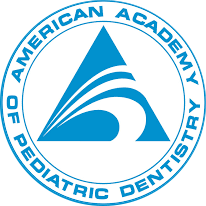Your Dental Visit
What to expect
We know that you might be feeling anxious about finding a dental office that your child loves. It’s an important decision! Whether this is your first visit or you’ve been here before, Dr. Brandon and the Treetop team aim to create an environment that is fun, welcoming, and safe. Our goal is to make every visit to Treetop a positive one.
When you come to Treetop, you can expect to be greeted by a knowledgeable team who will take the time to clearly explain your child’s dental care. Schedule your appointment today!
Fun & safe environment
Knowledgable team
Flexible scheduling
Work with your insurance
Listen to your questions
Dental care at every age
Birth to Six Months
Even before teeth have erupted, oral care is important! Although your child’s teeth may not be visible, try to massage your child’s gums after feeding and before bed with gauze or an infant washcloth to wipe away residual film left over from milk/formulas.
Teeth normally begin to erupt around 6 months of age, but some children may get their first teeth as early as 4-5 months, or as late as 8-12 months. Every child is unique, and follows their own timeline!
Six Months to Three Years
It is important to begin bushing your child’s teeth twice a day, with a toothpaste. Children who are still breastfeeding/drinking from the bottle should have their teeth brushed after feeding. A film of milk or juice left on the teeth can contribute to early childhood decay. Bottles/sippy cups should not be taken to bed unless they are filled with water. Proper care during these years can lead to healthy teeth later on!
Three to Six Years
Children should be encouraged to begin brushing on their own, but still need parental assistance. Those children who are able to spit out their toothpaste can have a pea sized amount placed on their toothbrush. Remember, only parents should be dispensing toothpaste. Spin-brushes can be very helpful at this age. Children should be weaned from pacifiers by this age, and it is important to begin to break any “thumb-sucking” habits. Some children may lose their first tooth around age 5-6. Healthy snacking should be encouraged. Fresh fruit, string cheese, fresh vegetables and nuts are healthy snacks. Sticky foods such as fruit snacks, fruit leather and other sweets or crackers should be given on a limited basis, and only given with a meal if possible.
Six Years to Adolescence
Some children may lose their first tooth at age 5-6, while some others may not lose their first tooth until age 7. It is important to remember that each child is different, and everyone may not follow the exact same pattern. Children become much more active, and those children who participate in sports should be encouraged to wear mouth-guards. Brushing can sometimes become “rushed” or skipped in this age group, so it is important to still monitor your child’s brushing routine.
Common questions
What is a pediatric dentist?
Pediatric dentists are the pediatricians of dentistry. Pediatric dentists are primary and specialty oral care providers for infants and children through adolescence. A pediatric dentist has two to three years specialty training following dental school and limits his/her practice to treating children only. This specialty training involves child psychology and development, behavior guidance techniques, treating patients with complex medical histories, and treating patients under sedation and general anesthesia. Pediatric dentists often work very closely with other health care providers to ensure that oral health care needs are integrated with a child’s general health care. For more information, please visit the American Academy of Pediatric Dentistry.
What is a board certified pediatric dentist?
A pediatric dentist that is board certified has gone through a rigorous examination process with the American Board of Pediatric Dentistry. Only dentists that have completed a residency in pediatric dentistry can sit for the board certification examinations. Board certification tests the knowledge and problem-solving abilities of a pediatric dentist.
Not all pediatric dentists are certified by American Board of Pediatric Dentistry (ABPD). The ABPD certifies pediatric dentists based on standards of excellence that lead to high quality oral health care for infants, children, adolescents, and patients with special health care needs. Certification by the ABPD provides assurance to the public that a pediatric dentist has successfully completed accredited training and a voluntary 2-part examination process designed to continually validate the knowledge, skills, and experience requisite to the delivery of quality patient care.
A pediatric dentist certified by ABPD is also known as a Diplomate of American Board of Pediatric Dentistry.
Dr. Brandon is a Diplomate of the American Board of Pediatric Dentistry.
When should I schedule my child's first visit to the dentist?
As recommended by the American Academy of Pediatric Dentistry (AAPD) and American Academy of Pediatrics (AAP), Dr. Brandon encourages you to schedule your child’s first “well baby” dental exam within 6 months eruption of the first tooth when your child has reached 12 months of age, whichever comes first.
Regular dental visits should then be scheduled every 6 months.
What happens on the first visit?
Children under the age of three are usually more comfortable in their parent’s lap than in the dental chair. Dr. Brandon encourages parents to allow their child to stay in their lap to help comfort the child during their first few visits. Dr. Brandon will perform a “knee-to-knee” exam where the teeth and gums are examined to evaluate a child’s growth and development. Topical fluoride is often applied at this visit. This visit will include dietary and hygiene recommendations as well. Dr. Brandon encourages you to ask as many questions as you like at this time.
Children over the age of 3 are encouraged to sit in the dental chair once they are comfortable in our office. The first visit includes a full exam, cleaning, x-rays and a fluoride treatment.
How can I help prepare for the visit?
The best preparation for your child’s first visit to our office is maintaining a positive attitude. Children pick up on adults’ apprehensions and if you make negative comments about trips to the dentist, you can be sure that your child will fear an unpleasant experience and act accordingly. Show your child the pictures of the office and staff on the website. Let your child know that it’s important to keep his/her teeth and gums healthy, and that the doctor will help do that. Parents can help prepare their child for the dental visit by explaining that Dr. Brandon will “Look, Count, and Clean” their teeth.
Remember that your pediatric dentist is specially trained to handle fears and anxiety, and our staff excels at putting children at ease during treatment. Please refrain from using words like “hurt”, “shot”, “needle”, or “pull”. Dr. Brandon and his staff never use these words when explaining treatment to our patients. Please join us in ensuring your child has a pleasant experience.
My child has special needs, can you help us?
Yes! Dr. Brandon has specialized training in caring for individuals with special needs and is committed to providing the best dental care for all children. Our friendly staff is specifically trained to diagnose and treat special needs patients, regardless of their physical, mental, developmental or other special health care needs.
We assist our special needs patients, as well as their care givers, in learning individualized preventative oral health practices. By establishing Treetop Pediatric Dentistry as their dental home, our special needs patients significantly reduce their risk of preventable dental/oral disease.
It is important that people who are in daily contact with our special needs patients become engaged in the dental care of the patient. If the special needs patient is not capable of self care, it is crucial that care givers are active in the prevention of dental disease and other aspect of the individual’s oral health care. Proper toothbrushing and flossing techniques are emphasized with all patients.
Our caring and experienced staff at Treetop Pediatric Dentistry will give your special needs child the gentleness and attention that he/she requires for a successful and positive dental visit. To make an appointment for your child, call us at (830) 515-5365.
Refer to the American Dental Association and American Academy of Pediatric Dentistry for tips for people who have special needs.
Are dental X-rays safe?
There is very little risk in dental X-rays. Pediatric dentists are especially careful to limit the amount of radiation to which children are exposed. Lead aprons and high-speed film are used to ensure safety and minimize your child’s exposure. You actually receive more radiation walking to your car on a sunny day than from a dental x-ray. There is far higher risk in undetected and undiagnosed dental disease and cavities than taking x-rays every 6-12 months.

Quick Links
Contact Us
2810 Oak Run Parkway, Suite 300
New Braunfels, TX 78132
(830) 515-5365
info@treetopdental.com


Quick Links
Contact Us
2810 Oak Run Parkway, Suite 300
New Braunfels, Texas 78132
(830) 515-5365
info@treetopdental.com


